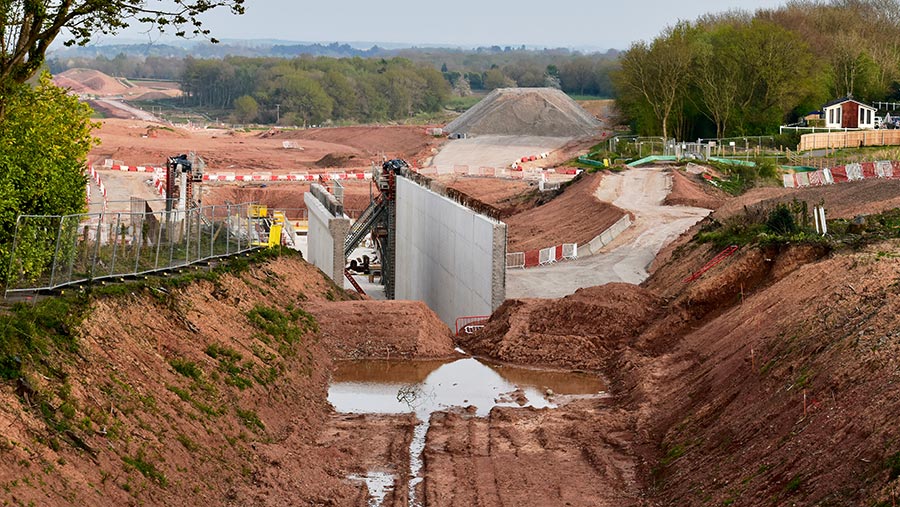Farmers may not get their land back, despite HS2 being ditched
 © Olya GY/Adobe Stock
© Olya GY/Adobe Stock Land and farming organisations are demanding fair treatment for those who have already had land taken by HS2 Ltd between Birmingham and Manchester, now that plans to extend the high speed rail line have been dropped.
The decision to abandon phase two of the project and redirect the £36bn allocated to other transport and infrastructure programmes was made by prime minister Rishi Sunak at the Conservative Party conference on Wednesday (4 October).
But according to Country Land and Business Association (CLA) president Mark Tufnell, not all of his members would welcome the news.
“There is currently no right for the original landowner to get their land back,” he said. “HS2 Ltd may sell the land on the open market, and it could be bought by anyone.
“By contrast, land that is compulsorily acquired by the Ministry of Defence is covered by rules that oblige the MoD to offer back to the original owner at current market value, before it’s offered on the open market.
“Given the increased use of compulsory purchase orders for infrastructure, the CLA is calling on government to extend this ‘right of first refusal’ to all land that has been subject to compulsory purchase by HS2 Ltd.”
‘Swift and fair’
NFU vice-president David Exwood also demanded “swift and fair resolution” to outstanding land ownership and access issues, “to ensure farms can get back to what they do best – producing climate-friendly food for the nation”.
“For those farming businesses impacted between Birmingham and Manchester, it is vital that land already taken is returned quickly and no safeguarding is left in place,” he said.
This relates to the process whereby government can say a route is “safeguarded”, so preventing landowners from carrying out any further development on that area of land, so that it could be used for HS2 at a later date.
This has been an issue on the previously planned route for HS2 from Birmingham to Leeds.
“We also need to see outstanding settlements sorted, especially as farmers and growers continue to face financial pressures due to high production costs,” said Mr Exwood.
“And we must not forget those farmers on phase one of HS2, from London to Birmingham, who have been feeling the impact of construction most acutely and remain to be compensated fully for the land taken, resulting in severe disruption to their businesses.”
Jonathan Scott Smith, partner at land agent Knight Frank, added that the decision to scrap the HS2 extension would be “heartbreaking” for those who had asked HS2 to buy their properties in advance of “statutory blight” or the HS2 discretionary schemes, and now find that they didn’t need to move in the first place.
